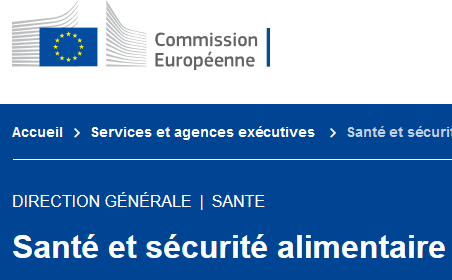Document type : Audit report n°2020-6965 from the European Commission's DG SANTE
Authors: DG SANTE
Summary by DG SANTE: This desktop audit of France took place during the period from 26 October to 9 November 2020 to evaluate the suitability and effectiveness of the measures in place to prevent animals being transported in a way likely to cause injury or undue suffering during transport by sea to non-EU countries. It did not involve on-site assessments.
The report concludes that controls carried out on vessels loading in France and during the French approval procedure for livestock vessels are inadequate to minimise the animal welfare risks linked to most specific technical equipment on board. The absence of a system to authorise sea journey transporters based in France further increases the risk for animals transported in vessels under their responsibility.
Documented procedures are generally inadequate to support port inspectors on how to verify compliance with the specific technical requirements of the Regulation during official controls of livestock vessels. This, together with the absence of suitably qualified staff to support the port inspectors in assessing the specific technical requirements translates into a poor assessment of the vessel’s compliance with EU requirements during the approval and pre-loading inspections.
The effectiveness of controls of livestock vessels are therefore dependent on the experience of the port inspectors. For some of the requirements, the port inspectors go beyond what the procedures indicate. Nonetheless, official controls do not adequately ensure compliance with all requirements.
In previous years, port inspectors were not checking all livestock vessels before animals were loaded. The authorities have taken action to correct this and the percentage of vessels inspected in 2019 was close to 100%.
The request to organisers to notify well in advance the planned loading of a vessel enables port inspectors to better organise their resources and gives them sufficient time to verify, amongst other things, that the vessel has the necessary documentation to transport animals thus avoiding the risk of unnecessary delays at the port during loading. However, there are no guarantees that organisers are planning journeys so that vehicles arrive gradually at the port and do not have to wait unnecessarily before unloading animals.
The facilities available in the port would allow the authorities – in case of delays in the loading of the vessels or long waiting times due to poor scheduling of the vehicles’ arrival at the port – to accommodate the animals thus avoiding welfare risks in those situations.
Port inspectors are aware of the checks they are required to do when vehicles arrive at the port. The absence of records on some of these checks however reduce the assurances that port inspectors are regularly performing them. There are also insufficient assurances that all animals loaded onto livestock vessels in France are fit to endure the sea journey.
Response from the competent authority available here




